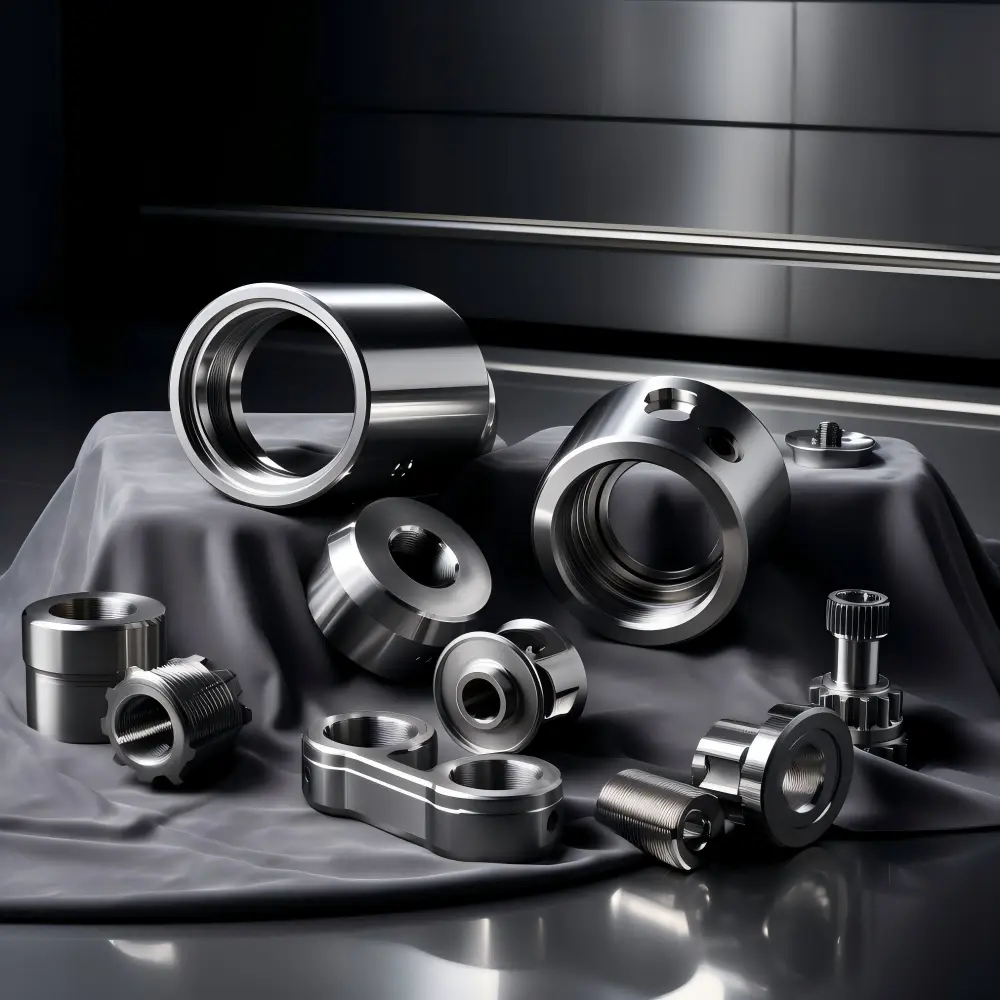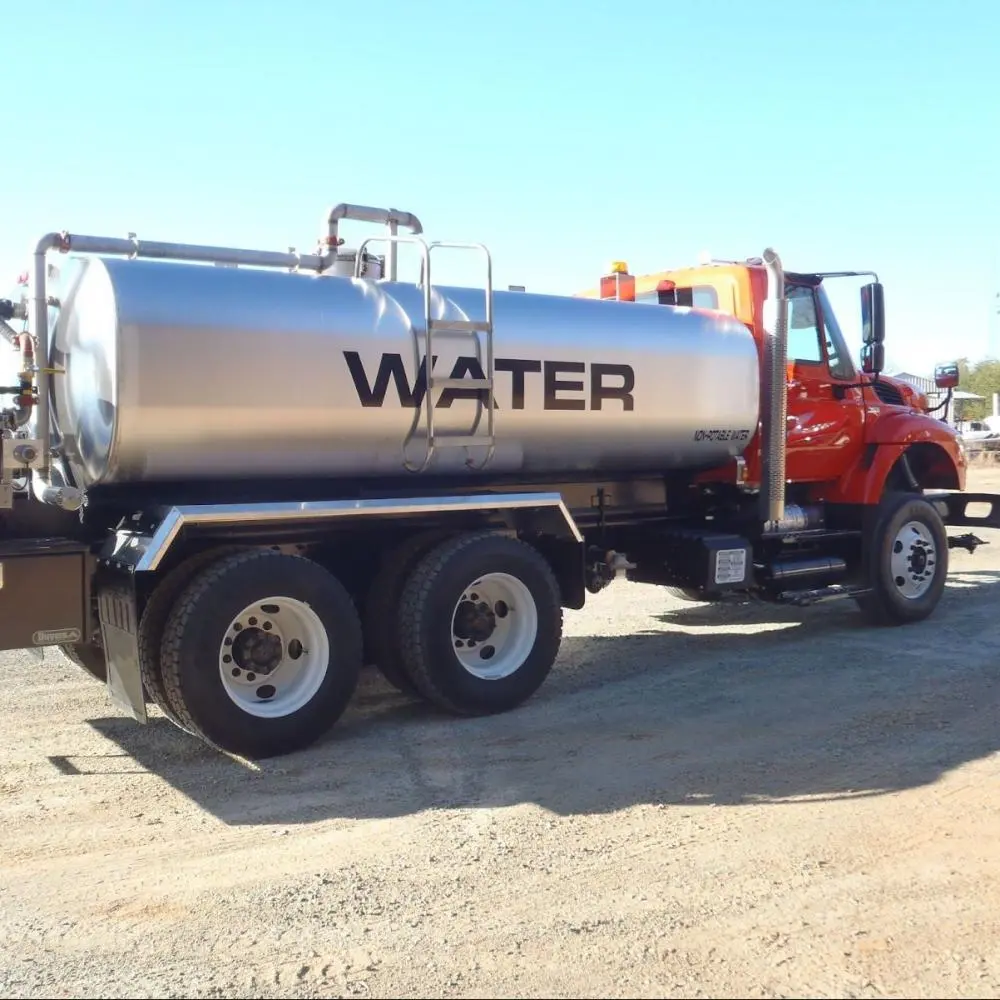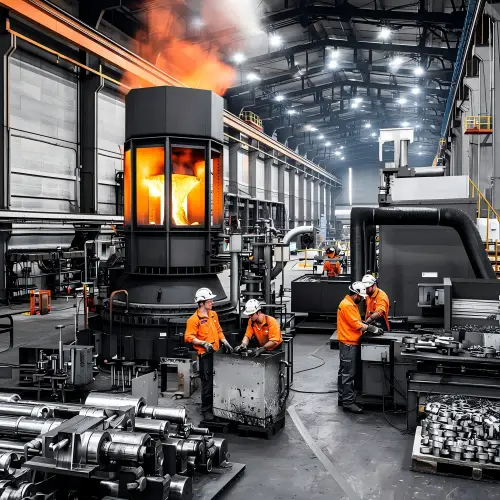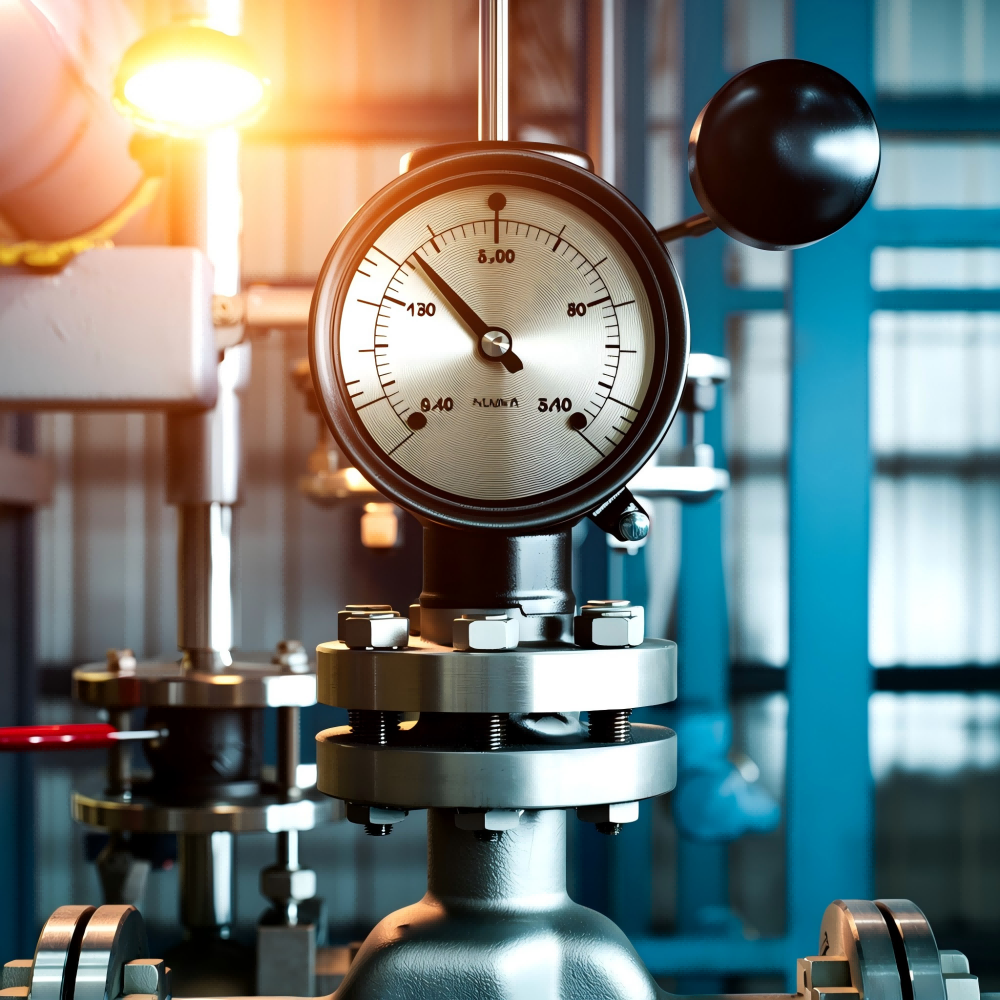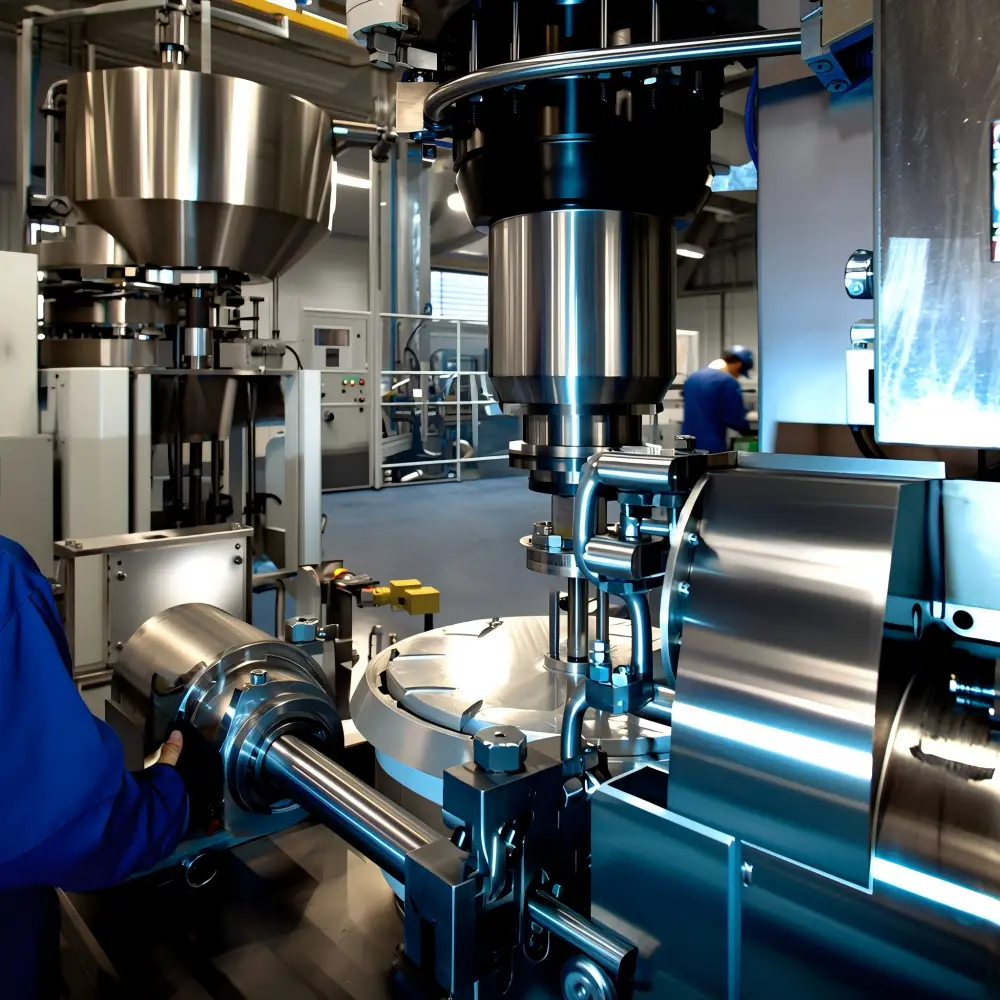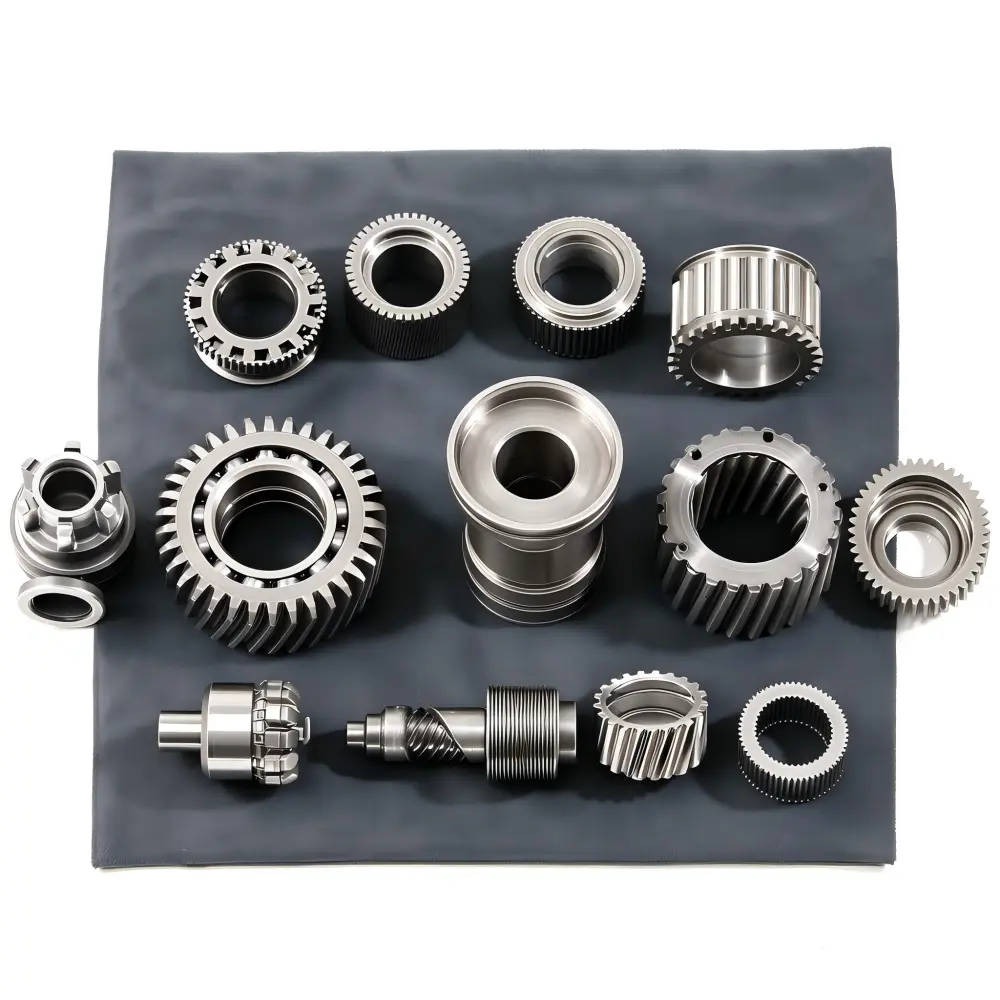How Stainless Steel Castings Enhance Food Safety
Stainless Steel Castings play a crucial role in enhancing food safety. Their durable and hygienic properties make them ideal for food machinery. These castings resist corrosion effectively, ensuring that machinery components remain uncontaminated. Regulatory bodies recognize stainless steel as safe for food contact, highlighting its importance in maintaining cleanliness. The smooth surfaces of stainless steel castings simplify cleaning and disinfection processes, which is vital in food processing environments. By using stainless steel, the food industry can uphold high standards of cleanliness and comply with stringent food safety regulations, ultimately protecting consumers.
Properties of Stainless Steel Ideal for Food Machinery
Corrosion Resistance
Stainless steel castings exhibit exceptional corrosion resistance, a crucial property for food machinery. This resistance prevents contamination by ensuring that machinery components do not degrade or corrode over time. In the food industry, maintaining a clean and uncontaminated environment is paramount. Stainless steel's unique composition, which includes chromium, forms a protective layer that shields the metal from corrosive substances. This feature ensures that food processing equipment remains safe and reliable.
"Stainless steel's combination of excellent corrosion resistance, high durability, broad temperature tolerances, and lightweight make it an exceptional choice for use in today’s cramped and fast-paced food service environments."
The longevity of machinery components is another significant benefit of using stainless steel castings. These components withstand harsh cleaning agents and high temperatures without losing their integrity. As a result, businesses can rely on their equipment for extended periods, reducing the need for frequent replacements and repairs.
Ease of Cleaning
Stainless steel castings offer ease of cleaning, a vital aspect in food machinery. The smooth surfaces of stainless steel reduce bacterial growth, as bacteria and germs cannot penetrate the hard and dense material. This property ensures that food safety hazards are minimized, maintaining a hygienic environment.
The non-porous nature of stainless steel simplifies maintenance and sanitation processes. Food machinery operators can clean and disinfect equipment quickly and efficiently, ensuring compliance with stringent food safety standards. This ease of cleaning contributes to the overall efficiency and success of businesses within the food and beverage industry.
Durability and Strength
Durability and strength are hallmarks of stainless steel castings, making them ideal for food machinery. These castings withstand high-pressure and high-temperature environments, which are common in food processing. The robust nature of stainless steel ensures that equipment can handle the demands of rigorous operations without compromising performance.
By reducing the frequency of replacements and repairs, stainless steel castings offer cost-effective solutions for food machinery manufacturers. The durability of these components translates into long-term savings, as businesses spend less on maintenance and replacements. This reliability makes stainless steel an indispensable asset in the food industry.
Applications of Stainless Steel Castings in Food Machinery
Stainless steel castings find extensive applications in food machinery, ensuring both efficiency and safety. Their unique properties make them indispensable in various equipment used throughout the food industry.
Food Processing Equipment
Mixers, Blenders, and Grinders
Stainless steel castings are essential in the construction of mixers, blenders, and grinders. These machines require components that can withstand constant use and exposure to moisture and food particles. The corrosion-resistant nature of stainless steel ensures that these machines remain hygienic and durable. Electropolished stainless steel components, such as tanks and valves, enhance the hygiene and quality of food products by providing smooth surfaces that are easy to clean.
Conveyors and Hoppers
In food processing, conveyors and hoppers play a crucial role in transporting ingredients and finished products. Stainless steel castings provide the necessary strength and durability for these components. The smooth and shiny surface of stainless steel minimizes the risk of contamination and ensures that food products move efficiently through the production line. This material choice also simplifies cleaning and maintenance, which is vital for maintaining high hygiene standards.
Packaging and Bottling Machines
Filling and Sealing Equipment
Stainless steel castings are widely used in filling and sealing equipment due to their ability to resist wear and tear. These machines must operate with precision to ensure that food products are packaged safely and securely. The robust nature of stainless steel ensures that the equipment functions reliably over time, reducing the risk of leaks or contamination.
Sterilization Units
Sterilization units in packaging and bottling machines benefit greatly from stainless steel castings. The material's resistance to high temperatures and harsh cleaning agents makes it ideal for maintaining a sterile environment. This ensures that food products remain uncontaminated during the packaging process, upholding the industry's stringent safety standards.
Cooking and Baking Equipment
Ovens and Fryers
Stainless steel castings are integral to the construction of ovens and fryers. These appliances must withstand high temperatures and frequent use. The durability and heat resistance of stainless steel make it the preferred choice for these applications. Additionally, the material's smooth surface facilitates easy cleaning, which is essential for maintaining food safety.
Steamers and Kettles
In cooking and baking equipment, steamers and kettles rely on stainless steel castings for their construction. The material's ability to resist corrosion and maintain structural integrity under pressure ensures that these appliances perform efficiently. The hygienic properties of stainless steel also prevent bacterial growth, making it a safe choice for food preparation.
Stainless steel castings play a pivotal role in the food industry by enhancing the performance and safety of various machinery. Their application in food processing, packaging, and cooking equipment underscores their importance in maintaining high standards of hygiene and efficiency.
Benefits of Using Stainless Steel Castings
Enhanced Hygiene
Stainless steel castings offer significant advantages in maintaining hygiene within food processing environments. Their non-porous surfaces play a crucial role in preventing bacterial growth. Bacteria cannot penetrate the dense material, ensuring that food machinery remains clean and safe. This characteristic is vital for food safety, as it minimizes the risk of contamination.
Compliance with food safety standards is another benefit of using stainless steel castings. Regulatory bodies recognize stainless steel as a safe material for food contact. Its hygienic properties align with stringent safety requirements, making it an ideal choice for food machinery manufacturers. By incorporating stainless steel castings, businesses can ensure that their equipment meets these essential standards.
Cost-Effectiveness
The cost-effectiveness of stainless steel castings stems from their durability and low maintenance requirements. These castings resist corrosion and wear, reducing the need for frequent repairs or replacements. Over time, businesses experience long-term savings due to the reduced maintenance costs associated with stainless steel components.
Moreover, stainless steel castings lower the risk of contamination-related recalls. Their robust nature ensures that machinery operates reliably, minimizing the chances of product contamination. This reliability translates into fewer recalls, which can be costly and damaging to a company's reputation. By investing in stainless steel castings, businesses can protect their bottom line while maintaining high safety standards.
Environmental Impact
Stainless steel castings also offer environmental benefits. The recyclability of stainless steel makes it an eco-friendly choice for food machinery. Manufacturers can recycle stainless steel components at the end of their lifecycle, reducing waste and conserving resources. This sustainability aligns with the growing demand for environmentally responsible practices in the food industry.
Energy efficiency in production and use further enhances the environmental impact of stainless steel castings. The production process requires less energy compared to other materials, and the durability of stainless steel means that machinery consumes less energy over time. These factors contribute to a reduced carbon footprint, making stainless steel castings a sustainable option for food machinery manufacturers.
Stainless steel castings play a pivotal role in ensuring food safety. They provide reliable, hygienic, and durable components for food machinery. Their exceptional properties, such as corrosion resistance and ease of sanitation, make them indispensable in maintaining cleanliness. These attributes ensure compliance with stringent safety standards, ultimately protecting consumers. By investing in stainless steel castings, food machinery manufacturers can uphold the highest safety and quality standards. This strategic choice not only enhances the efficiency of food processing operations but also contributes to sustainability in food production.
Ningbo Pingheng Machinery Co., Ltd (www.phcasting.com) is a professional manufacturer of stainless steel investment casting, and its products are widely used in the field of food machinery.
See Also
Exploring The Advantages Of Precision Casting Techniques
Discovering The Benefits Of Silicone Sol Casting Methods
A Deep Dive Into Precision Casting And Its Advantages
Future Trends In Advanced Precision Casting Technologies
Evaluating The Benefits And Drawbacks Of Silicone Sol Castings






